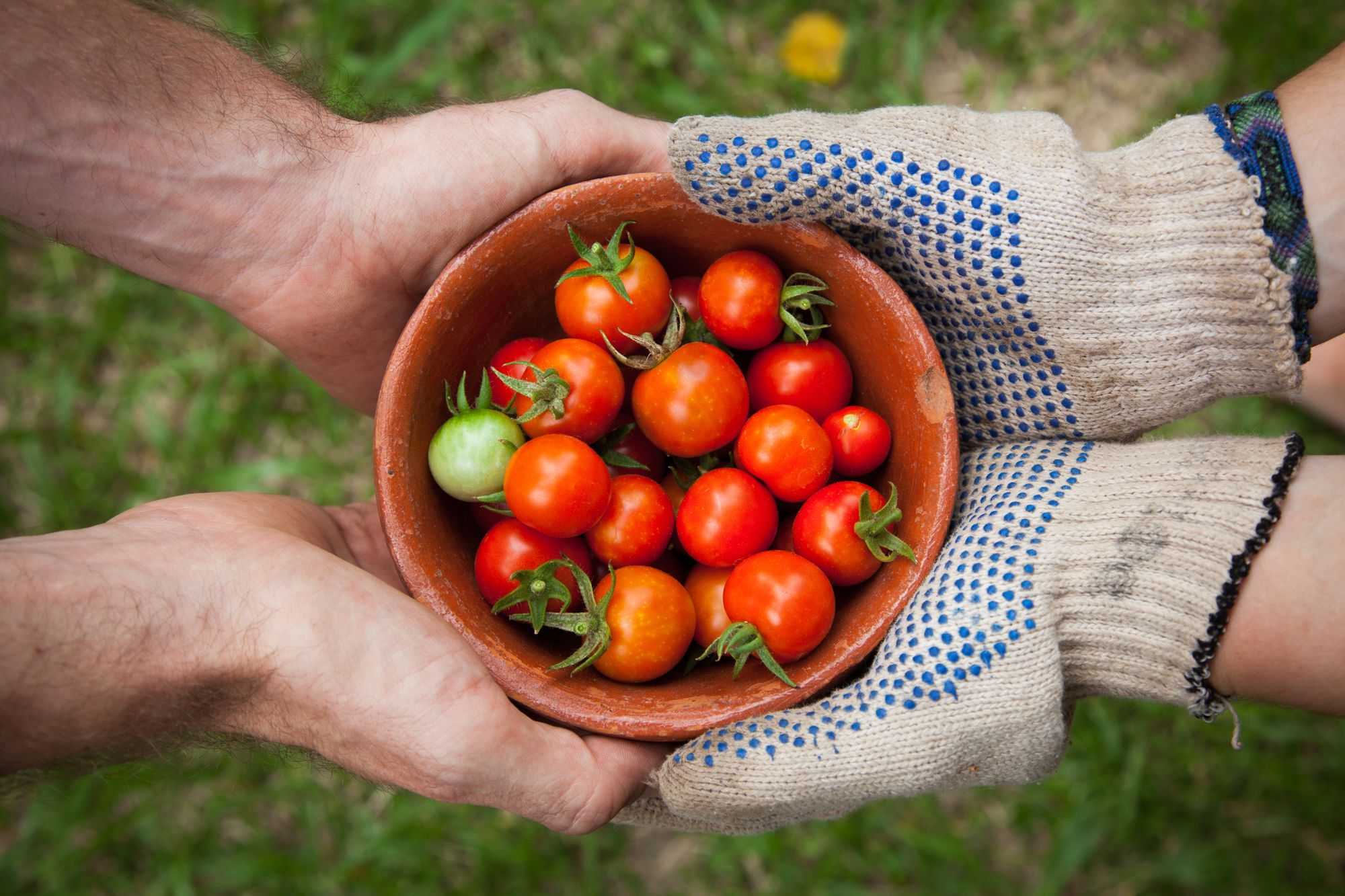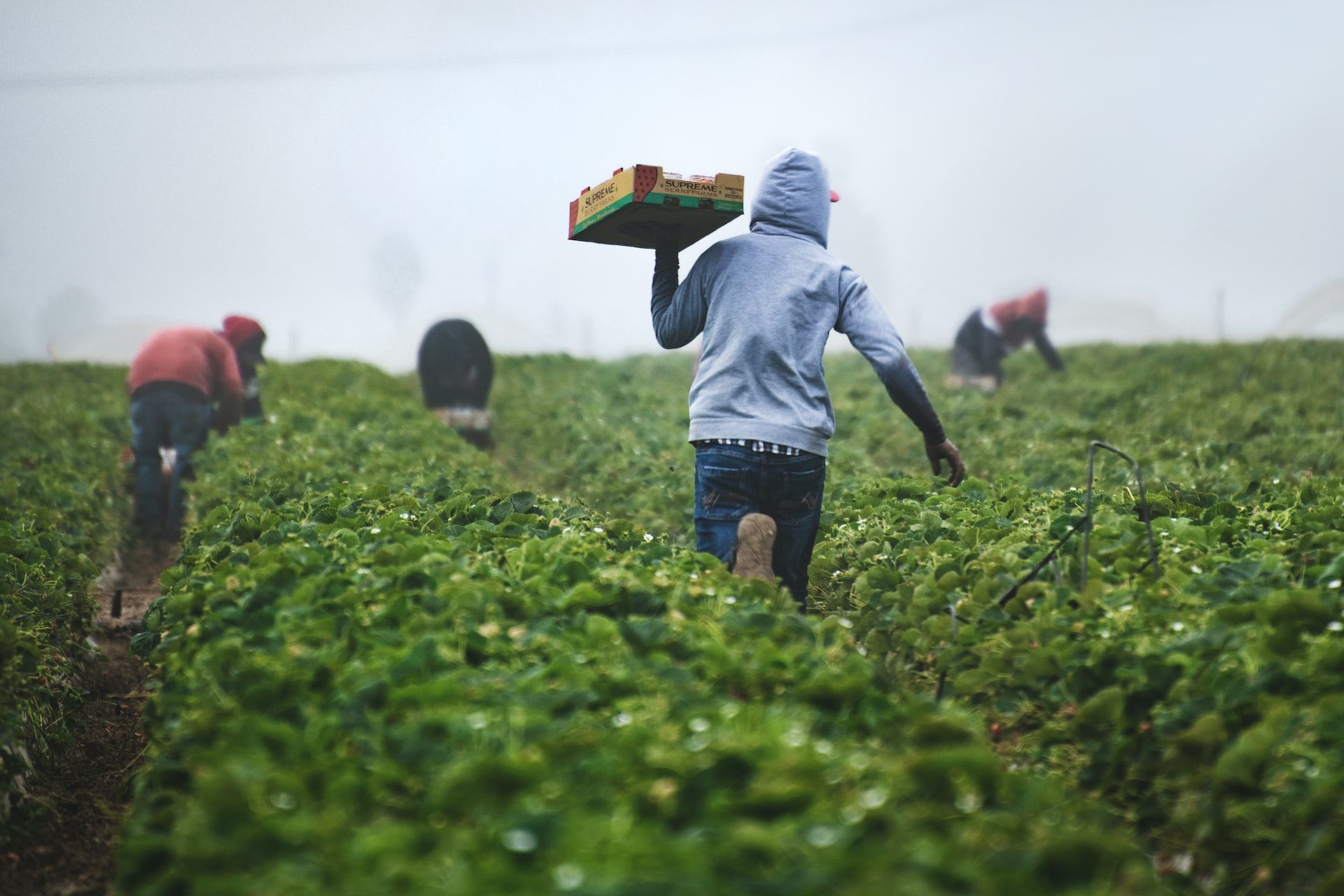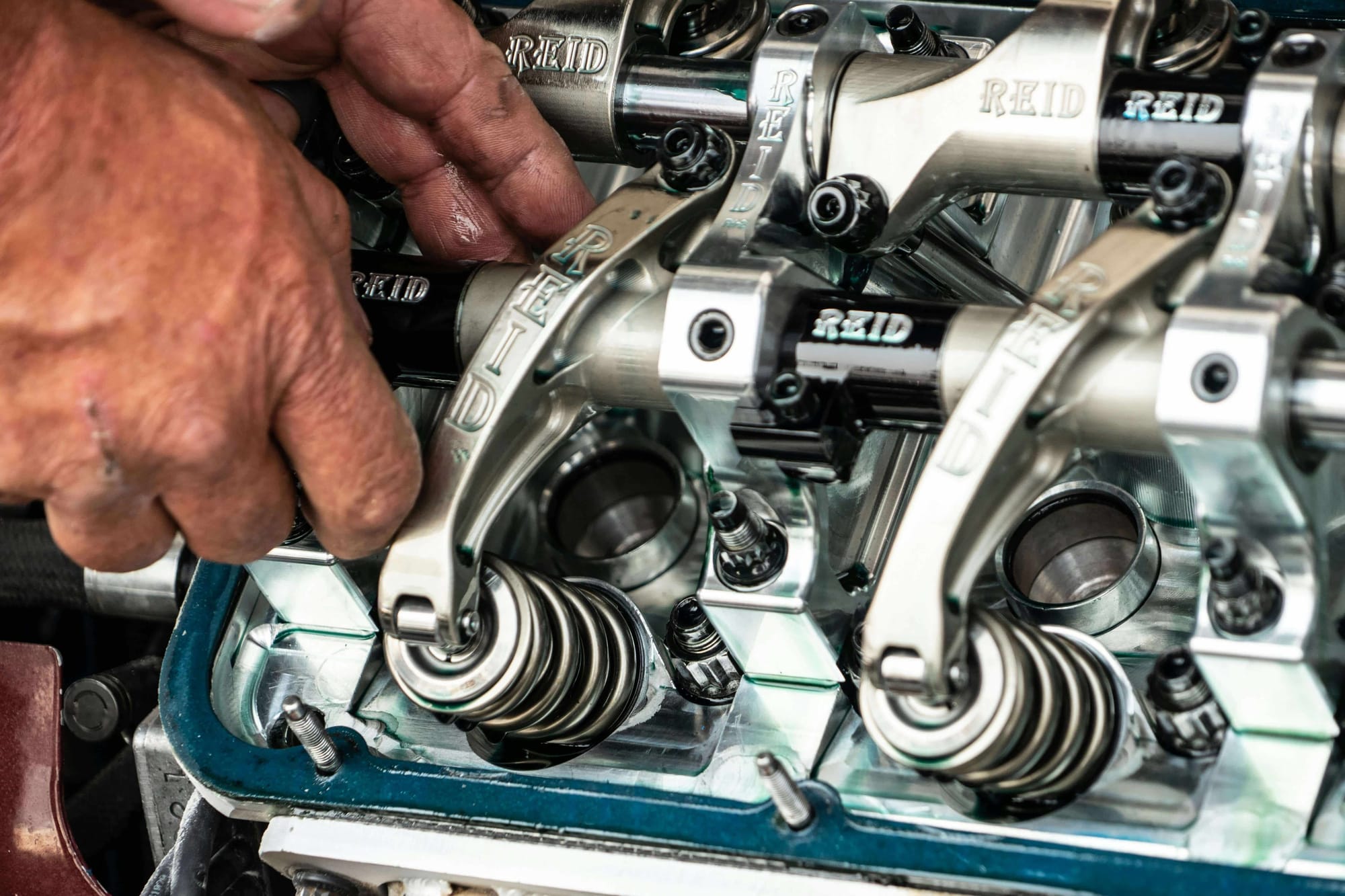How can we ensure that the food we eat is safe and sustainable?
Food production is one of the most important industries in the world. Without it, we wouldn't be able to sustain ourselves. But food production comes with a number of risks and challenges. Not only can it be environmentally damaging, but it also has an impact on human health.
The best way to ensure safe and sustainable food production is to use best practices. This means that we should take into account a variety of factors, including water usage, agricultural techniques, and animal welfare. By implementing these best practices, we can reduce the risk of contamination and minimize environmental impacts.
In today’s guide, we’ll discuss everything associated with safe and sustainable food production. Let’s take a look at the table of content before we dive in:
- Meaning of Sustainable Food Production
- Key Components of Sustainable Food Production
- Food Production Impact on Environment
- Important Ways to Make Food Production More Sustainable
- Importance of Sustainability for Producers and Consumers
- Challenges and Risks Associated with Conventional Food Production Methods
- Benefits of Adopting Safe and Sustainable Practices
- Potential Barriers to Adopting Safe and Sustainable Practices & Opportunities
- Examples of Farms or Companies that are Successfully Implementing Sustainable Practices
- Wrapping Up
- How Deskera Can Assist You?
Let's get started!
Meaning of Sustainable Food Production
Sustainable food production seeks to minimize the negative impact of food production on the environment, including soil erosion, water pollution, and greenhouse gas emissions. It also aims to promote social responsibility by ensuring fair labor practices, ethical treatment of animals, and support for local communities.
Finally, sustainable food production recognizes the importance of economic viability, including fair prices for farmers and food producers, and support for local and regional markets.
By adopting sustainable food production practices, we can ensure that we produce food that is healthy, nutritious, and accessible to all, while preserving the health and well-being of the planet and its inhabitants.
Key Components of Sustainable Food Production
Sustainable food production recognizes the interconnectedness of the environment, the economy, and society. It seeks to balance these three elements in a way that supports long-term food security and sustainable development.
Following, we’ve discussed some important key components of sustainable food production. Let’s discuss:
- Conservation and Management of Natural Resources: Sustainable food production aims to conserve and manage natural resources, such as water, soil, and biodiversity, to ensure their long-term health and productivity. This involves using practices that minimize soil erosion, conserve water resources, promote biodiversity, and reduce the use of chemical inputs.
- Climate Change Mitigation: Sustainable food production recognizes the importance of addressing climate change by reducing greenhouse gas emissions from food production and transportation. This can be achieved by using renewable energy sources, reducing food waste, and adopting low-emission farming practices.
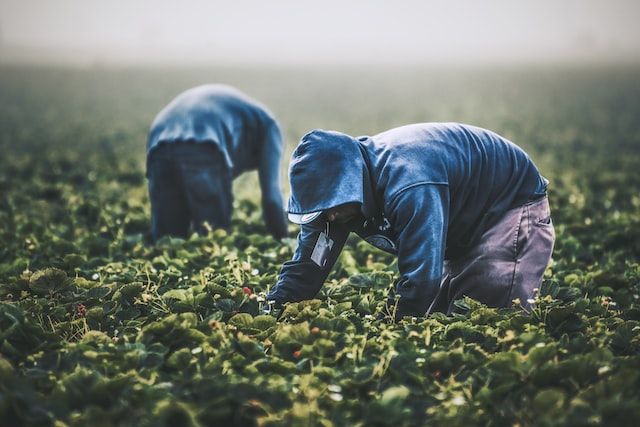
- Social Responsibility: Sustainable food production recognizes the importance of social responsibility, including fair labor practices, ethical treatment of animals, and support for local communities. This involves providing fair wages and benefits to workers, promoting animal welfare, and supporting local food systems.
- Food Security: As the global population continues to grow, there is increasing pressure on the food system to produce enough food to feed everyone. Unsustainable food production practices can compromise the long-term availability of resources needed for food production, such as fertile soil and clean water. By promoting sustainable food production, we can ensure that the food system remains resilient and capable of feeding future generations.
- Economic Viability: Sustainable food production seeks to promote economic viability by ensuring that farmers and food producers receive fair prices for their products. This involves supporting local and regional markets, promoting sustainable agriculture policies, and providing financial incentives for sustainable practices.
- Public Health: Sustainable food production practices can also have positive impacts on public health. By reducing the use of pesticides and other chemicals in food production, and promoting more diverse and nutrient-dense diets, sustainable food production can help to improve overall public health.
Ultimately, sustainable food production is about producing food in a way that supports the health and well-being of the planet, its inhabitants, and future generations. Furthermore, it requires a holistic approach that considers the environmental, social, and economic impacts of food production and consumption.
Food Production Impact on Environment
Food production has a significant impact on the environment. It includes the depletion of natural resources, pollution, and greenhouse gas emissions.
Following, we’ve discussed some of the environmental impacts of food production:
- Land Use: Food production requires significant amounts of land, which can lead to deforestation, soil erosion, and loss of biodiversity. Agriculture is responsible for the largest share of global deforestation, as forests are cleared to make way for cropland and pasture. This can have serious consequences for biodiversity, as forests provide habitat for many species.
- Water Use: Agriculture is also a major consumer of water, with irrigation accounting for up to 70% of global freshwater use. The use of irrigation can lead to water depletion and salinization of soils and can also contribute to water pollution through the use of fertilizers and pesticides.
- Greenhouse Gas Emissions: Food production is a significant contributor to greenhouse gas emissions, particularly carbon dioxide, methane, and nitrous oxide. These emissions come from a variety of sources, including fossil fuel use in machinery, fertilizer production, and livestock digestion and manure management.
- Pollution: Food production can also contribute to air and water pollution, particularly through the use of fertilizers and pesticides. These chemicals can contaminate waterways and harm wildlife, as well as pose risks to human health.
- Food Waste: Finally, food production contributes to food waste, which has significant environmental impacts. When food is wasted, the resources used to produce it, such as water and energy, are also wasted. In addition, food waste that ends up in landfills contributes to greenhouse gas emissions, as it decomposes and produces methane.
All in all, the environmental impacts of food production are significant and complex. By adopting sustainable agricultural practices and reducing food waste, we can help to minimize these impacts and promote a more sustainable food system.
Important Ways to Make Food Production More Sustainable
Making food production more sustainable involves a range of actions across the food system, from agricultural practices to transportation, processing, and consumption.
Below, we’ve thoroughly discussed some key actions that can be taken to make food production more sustainable:
- Sustainable Agriculture: One of the most important steps in making food production more sustainable is adopting sustainable agricultural practices. This includes practices such as crop rotation, cover cropping, reduced tillage, and integrated pest management, which help to conserve soil, reduce water use, and minimize the use of fertilizers and pesticides.
- Conservation of Natural Resources: Conserving natural resources such as water, soil, and biodiversity is also critical to making food production more sustainable. This can be achieved through practices such as drip irrigation, rainwater harvesting, and the use of agroforestry and other sustainable land use practices.
- Use Eco-Friendly Food Packaging: Sustainable food production requires minimizing the impact of packaging on the environment. This can be done by creating packaging that is easily recyclable and employing eco-friendly packaging materials, like biodegradable plastics.
- Reducing Food Waste: Food waste is a major contributor to environmental impacts associated with food production. By reducing food waste through better storage, distribution, and consumer education, we can minimize the environmental impact of food production.
- Preserve Natural Resources' Quality: Sustainable food production depends on maintaining the quality of natural resources. This can entail actions like cutting back on fertiliser and pesticide use, regulating soil health, and maintaining water quality.
- Supporting Local Food Systems: Supporting local food systems can help to reduce the environmental impact of food production by reducing transportation emissions and promoting sustainable agricultural practices. This can be achieved through policies that support local food systems, such as farmer's markets and community-supported agriculture programs.
- Reducing Meat Consumption: The production of meat, particularly beef and lamb, has a significant environmental impact due to its high greenhouse gas emissions and land use requirements. Further, reducing meat consumption, particularly beef and lamb, can help to reduce the environmental impact of food production.
- Get Food Ingredients from Sustainable Sources: Supporting sustainable food production requires obtaining food ingredients from sustainable sources. This can entail obtaining food from local and regional vendors as well as using verified sustainable sources for commodities like palm oil, cacao, and coffee.
- Adopting Renewable Energy: The use of renewable energy, such as solar and wind power, in food production and processing can help to reduce greenhouse gas emissions and promote a more sustainable food system.
- Protecting Marine Resources: Marine resources are also important to consider in sustainable food production, particularly in relation to seafood. Practices such as reducing overfishing and protecting marine habitats can help to ensure that marine resources are used sustainably.
- Implement Hazard Analysis and Critical Control Points (HACCP): HACCP is a food safety management system that focuses on identifying and controlling potential hazards in the food production process. By implementing HACCP, businesses can ensure that food is produced safely and with minimal waste.
- Use Green Cleaning Products: Many traditional cleaning products contain harmful chemicals that can be damaging to the environment and to human health. By using green cleaning products, businesses can reduce their environmental impact and create a safer and healthier workplace.
Eventually, making food production more sustainable requires a range of actions across the food system. By adopting sustainable agricultural practices, conserving natural resources, reducing food waste, supporting local food systems, reducing meat consumption, and adopting renewable energy, we can create a more sustainable food system that supports the health of the planet and its inhabitants.
Importance of Sustainability for Producers and Consumers
The importance of sustainable food production is significant for both producers and consumers:
Importance for Producers:
Cost Savings: By implementing sustainable food production practices, producers can reduce waste, conserve resources, and increase efficiency. This can result in significant cost savings over time.
Marketability: As consumers become increasingly interested in sustainable food production, producers who prioritize sustainability may have a competitive advantage in the marketplace. In addition, sustainable food production practices can also help producers meet certification requirements and comply with regulations.
Reputation: Sustainable food production practices can help to build a positive reputation for producers, leading to increased trust and loyalty from consumers. Producers who prioritize sustainability can also contribute to a more positive public perception of the food industry as a whole.
Importance for Consumers:
Health: Sustainable food production practices can lead to healthier food choices and a more diverse and nutrient-dense diet. Consumers who prioritize sustainable food production can feel confident that they are making choices that are good for their health.
Environmental Impact: Consumers who prioritize sustainable food production can feel good about their choices knowing that they are helping to reduce the environmental impact of food production. This can contribute to a sense of personal responsibility and satisfaction in making positive choices for the environment.
Social Responsibility: Sustainable food production techniques can also help society by fostering fair labor practices, assisting local farmers and communities, and other socially beneficial outcomes. Customers that value ethical and socially responsible food production can feel good about supporting these efforts.
Therefore, sustainable food production is important for both producers and consumers because it can lead to cost savings, marketability, reputation, health benefits, environmental benefits, and social responsibility. Moreover, producers and consumers may collaborate to develop a food system that is both commercially competitive and environmentally responsible by prioritizing sustainability.
Challenges and Risks Associated with Conventional Food Production Methods
Conventional food production methods refer to the use of intensive agricultural practices to produce high yields of crops or livestock. While these methods have helped to increase food production and meet the demands of a growing population, they are associated with several challenges and risks, including:
- Soil Degradation: Intensive farming practices, such as monoculture and excessive use of fertilizers and pesticides, can lead to soil degradation, reducing the quality and fertility of the soil over time.
- Water Pollution and Scarcity: The use of fertilizers and pesticides can lead to water pollution, while unsustainable irrigation practices can lead to water scarcity and depletion.
- Biodiversity Loss: Conventional farming practices can lead to the loss of biodiversity, as monoculture crops replace diverse ecosystems, and pesticides and herbicides kill off beneficial insects and pollinators.
- Climate Change: Conventional food production is a significant contributor to greenhouse gas emissions, contributing to climate change.
- Animal Welfare: In conventional animal agriculture, animals are often raised in overcrowded and unsanitary conditions, leading to stress, disease, and poor welfare.
- Health Risks: The use of pesticides and antibiotics in conventional food production can pose health risks to workers, consumers, and the environment.
Therefore, conventional food production methods are associated with significant challenges and risks, including soil degradation, water pollution and scarcity, biodiversity loss, climate change, animal welfare concerns, and health risks.
As a result, there is increasing interest in promoting sustainable food production practices that prioritize environmental and social responsibility, as well as animal welfare and human health.
Benefits of Adopting Safe and Sustainable Practices
Adopting safe and sustainable practices in food production can bring several benefits, including:
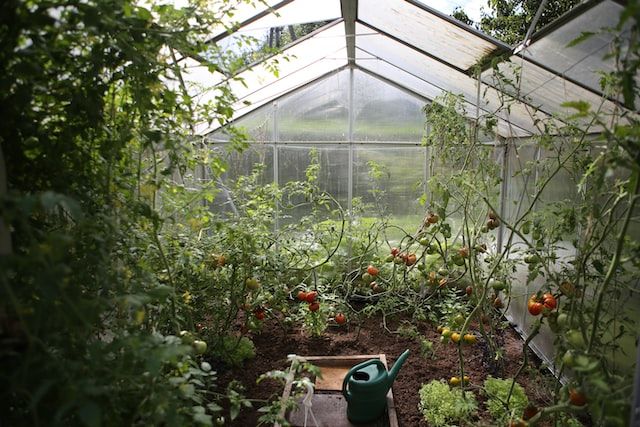
- Environmental Benefits: Safe and sustainable practices can reduce the negative impact of food production on the environment, including reducing greenhouse gas emissions, protecting natural resources such as water and soil, and preserving biodiversity.
- Health Benefits: Safe and sustainable practices can lead to healthier food options, free from harmful chemicals and antibiotics. This can lead to improved health for both consumers and workers involved in food production.
- Economic Benefits: By reducing waste and increasing efficiency, safe and sustainable practices can lead to cost savings for food producers. In addition, sustainable practices can increase marketability and customer loyalty, leading to increased sales and profits.
- Social Benefits: Adopting safe and sustainable practices can promote fair labor practices and support local communities. This can lead to improved working conditions for food workers and support for local farmers.
- Consumer Confidence: By prioritizing safe and sustainable practices, food producers can increase consumer confidence in their products. This can lead to increased trust and loyalty from customers.
Ultimately, adopting safe and sustainable practices in food production can bring significant benefits, including environmental, health, economic, social, and consumer confidence benefits. By putting sustainability first, food producers can satisfy the demands of an expanding population while building a more robust and responsible food system.
Potential Barriers to Adopting Safe and Sustainable Practices & Opportunities
While adopting safe and sustainable practices in food production can bring many benefits, there are also potential barriers that may prevent farmers and companies from implementing these practices. Some of these barriers include:
- Cost: Switching to safe and sustainable practices can require significant upfront costs, such as investing in new equipment or changing farming practices. This can be a significant barrier, especially for small-scale farmers who may not have the resources to make these changes.
- Lack of Knowledge: Farmers may lack knowledge or training in sustainable practices, which can make it difficult to implement them effectively. This can be a particular challenge for older or more traditional farmers who may be less familiar with sustainable practices.
- Resistance from Traditional Farmers: Some farmers may be resistant to change, especially if they have been using conventional methods for many years. This can be a significant barrier, especially if these farmers are part of a larger community that is resistant to change.
Despite these barriers, there are also opportunities for innovation, collaboration, and market differentiation that come with adopting safe and sustainable practices. For example:
- Innovation: Adopting safe and sustainable practices can lead to innovation in farming techniques, equipment, and technology. This can lead to new products and services that can improve efficiency, reduce waste, and improve sustainability.
- Collaboration: Collaboration between farmers, researchers, and other stakeholders can lead to new ideas and approaches for sustainable food production. By working together, these stakeholders can share knowledge and resources, and develop new solutions for sustainability challenges.
- Market Differentiation: Adopting safe and sustainable practices can also provide a competitive advantage in the marketplace. Consumers are increasingly interested in sustainable food options, and companies that prioritize sustainability can differentiate themselves and appeal to this growing market segment.
Ultimately, while there are potential barriers to adopting safe and sustainable practices, there are also significant opportunities for innovation, collaboration, and market differentiation. By prioritizing sustainability, farmers and companies can create a more resilient and responsible food system, while meeting the demands of a growing population.
Examples of Farms or Companies that are Successfully Implementing Sustainable Practices
There are many farms and companies that are successfully implementing safe and sustainable practices in their food production. Following, we’ve discussed some crucial examples:
- Patagonia Provisions: Patagonia Provisions is a sustainable food company that prioritizes regenerative agriculture, ethical sourcing, and environmentally friendly packaging. They partner with farmers and ranchers who use regenerative practices to restore soil health and reduce greenhouse gas emissions.
- Niman Ranch: Niman Ranch is a network of small, family-owned farms that prioritize animal welfare and sustainable farming practices. They raise livestock without antibiotics or added hormones, and their farms prioritize soil health, biodiversity, and responsible water use.
- Driscoll's: Driscoll's is a berry company that has made a commitment to sustainable farming practices. They prioritize soil health and water conservation, and they have implemented a program to reduce pesticide use and protect pollinators.
- Stonyfield Farm: Stonyfield Farm is a dairy company that prioritizes organic farming practices and responsible sourcing. They use regenerative practices on their farms, and they have implemented programs to reduce waste and energy use.
- Costa Farms: Costa Farms is a large-scale nursery company that has implemented sustainable practices across their operations. They use environmentally friendly growing practices, prioritize water conservation, and have implemented a program to reduce waste and promote recycling.
These are just a few examples of farms and companies that are successfully implementing safe and sustainable practices in their food production. These businesses are lowering their environmental effect and fostering the development of healthier and more ethical food systems by placing a high priority on sustainability.
Wrapping Up
In conclusion, safe and sustainable food production is becoming an increasingly important topic for both producers and consumers.
Conventional food production methods can have significant environmental and health impacts, and there is a growing awareness of the need to adopt more sustainable practices.
While there may be barriers to adopting these practices, such as cost or resistance from traditional farmers, there are also significant opportunities for innovation, collaboration, and market differentiation.
By prioritizing sustainability, farmers and companies can create a more resilient and responsible food system, while meeting the demands of a growing population.
Ultimately, the adoption of safe and sustainable food production practices can bring many benefits, including improved soil health, reduced greenhouse gas emissions, and a healthier and more sustainable food system for all.
How Deskera Can Assist You?
Deskera's integrated financial planning tools allow investors to better plan their investments and track their progress. It can help investors make decisions faster and more accurately.
Deskera Books enables you to manage your accounts and finances more effectively. Maintain sound accounting practices by automating accounting operations such as billing, invoicing, and payment processing.

Deskera CRM is a strong solution that manages your sales and assists you in closing agreements quickly. It not only allows you to do critical duties such as lead generation via email, but it also provides you with a comprehensive view of your sales funnel.
Deskera People is a simple tool for taking control of your human resource management functions. The technology not only speeds up payroll processing but also allows you to manage all other activities such as overtime, benefits, bonuses, training programs, and much more. This is your chance to grow your business, increase earnings, and improve the efficiency of the entire production process.
Final Takeaways
We've arrived at the last section of this guide. Let's have a look at some of the most important points to remember:
- Sustainable food production seeks to minimize the negative impact of food production on the environment, including soil erosion, water pollution, and greenhouse gas emissions.
- Sustainable food production recognizes the importance of social responsibility, including fair labor practices, ethical treatment of animals, and support for local communities.
- Food production is a significant contributor to greenhouse gas emissions, particularly carbon dioxide, methane, and nitrous oxide. These emissions come from a variety of sources, including fossil fuel use in machinery, fertilizer production, and livestock digestion and manure management.
- Sustainable food production requires minimizing the impact of packaging on the environment. This can be done by creating packaging that is easily recyclable and employing eco-friendly packaging materials, like biodegradable plastics.
- ACCP is a food safety management system that focuses on identifying and controlling potential hazards in the food production process. By implementing HACCP, businesses can ensure that food is produced safely and with minimal waste.
- Adopting safe and sustainable practices can lead to innovation in farming techniques, equipment, and technology. This can lead to new products and services that can improve efficiency, reduce waste, and improve sustainability.
- Adopting safe and sustainable practices can also provide a competitive advantage in the marketplace. Consumers are increasingly interested in sustainable food options, and companies that prioritize sustainability can differentiate themselves and appeal to this growing market segment.
Related Articles



